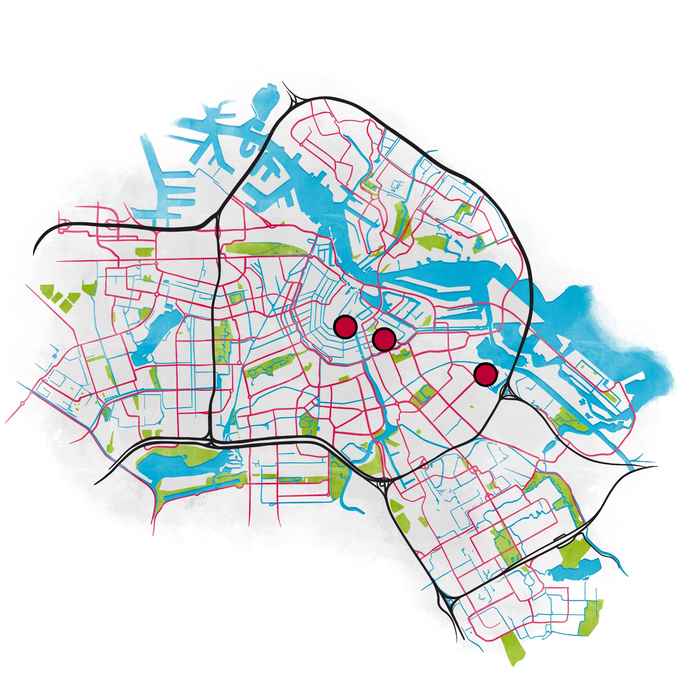Vision
The University of Amsterdam (UvA) is working to scale back its accommodations for education and research from a total of around 85 buildings to four innovation districts in the city. With so many properties scattered around the city, fragmentation is inevitable. Moreover, several properties are in poor condition, not equipped to meet the demands of modern-day teaching and research and lack the space needed for cross-disciplinary collaboration.
